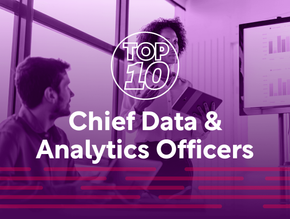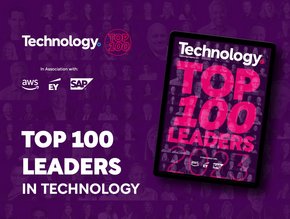Top 10 Technological Advancements Changing the World

Technology is a master of stealth: we integrate it into every part of our lives, yet rarely investigate how or why it works. Recent advancements have allowed us to develop new disease treatments, upgrade transportation networks, and personalise marketing campaigns. Here’s a shortlist of the tech that’s already changed life as we know it.
10: Social media
Those of us born before 2000 might ascribe social media to a teenage trend. Yet there’s no denying that Instagram, TikTok, LinkedIn, Facebook, and Twitter revolutionised global communications. Movements such as #MeToo and #BlackLivesMatter rose to national prominence, and multinational brands regularly hire influencers and social media gurus to promote and sell their products via social platforms. And what happens on the web certainly doesn’t stay there: in recent years, social media debacles have brought down major executives, drawn attention to human rights abuses, and launched political opposition movements.
09: Smart Assistants
From Siri to Alexa, we rely on smart assistants to select our music, recommend products, and send messages to loved ones. In 2019, individuals used more than 3.25bn voice assistant devices, a number that’s expected to double to 8bn by 2023. Not long ago, curious souls had to venture to a library to find answers to their questions. Now, our smart assistants can sort through millions of websites in seconds to satisfy our thirst for knowledge. Want to learn more about ‘Roman history’? Google’s Alexa can set you up with 129,000,000+ results.
08: Smartphones
The Swiss Army knife of technology, it’s hard to believe smartphones are relatively new to our civilisation. Able to power hundreds of thousands of apps, the smartphone changed how we take photos, navigate roads, and stay connected to the world. 13 years after the launch of the iPhone, more than 3.5bn people—half the world’s population—own and use a smartphone. Now, more people have access to information, books, and current news at their fingertips than ever before. As we’ve seen over the past year, this trend can both connect and divide us.
07: VPNs
Previously a niche internet feature, approximately a quarter of internet users now use a VPN, short for ‘virtual private network’. This technology overlays a private network on a public (often restricted) network to allow users to freely send and receive data. While some use the technology to illegally download or watch movies, citizens around the world have used VPNs to hide online activity, short-circuit internet censorship, and sidestep national restrictions on streaming services.
06: Facial Recognition
Now integrated into phones, security cameras, and marketing campaigns, facial recognition is starting to go mainstream. From 2019 to 2024, the industry is projected to expand from US$3.2bn to US$7bn. Cameras linked to facial recognition databases help track illegal goods and services, but companies are just now starting to consider the marketing capabilities. When you enter a store, facial recognition could scan you to make personalised product recommendations and store your purchase data. Sounds crazy—but it might make Christmas shopping a bit easier!
05: 3D Printing
Called the fourth industrial revolution by some, 3D printing will likely grow to a US$2bn market in 2021. By relying on computer-aided design (CAD), 3D printers extrude three-dimensional products by slowly adding layers of plastics, composites, or bio-materials. Deloitte estimates that among large companies, spending on technology is increasing by an annual rate of 13%. From an environmental perspective, this is great. Products created with this method are likely to be recyclable and 3D printing reduces manufacturing waste.
04: DNA Testing
Companies like 23andMe brought genetic testing out of scientific labs and into the general population. Though some raise concerns about privacy invasions, DNA testing companies have built vast databases of genetic information that might allow us to better identify criminals, develop new drugs and treatments for diseases such as Alzheimer’s, and advance gene-editing techniques such as CRISPR. According to Libby Copeland from the Washington Post, the technology has also ‘reconfigured how [we] understand kinship and identify, not to mention how we think about truth and the past’.
03: Drones
What started out in the realm of science fiction has transformed a surprising amount of industries over the past decade. Now, unmanned cameras can shoot Hollywood movie sequences, shipping companies such as Amazon can deliver packages to remote locations, and farmers can spray pesticides over crops to protect their crops. In the coming years, citizens will likely raise concerns about government surveillance and the use of drones in international warfare. But for now, drone technology is making consumers’ lives easier and expediting shipping across the globe.
02: Video Conferencing
After a year of social distancing, families, coworkers, and international business partners are used to connecting and collaborating via video chat. While Zoom has emerged as the world’s most widely used video conferencing platform, currently hosting 300 million daily users, a multitude of other video apps are springing up to capitalise on the demand. Many companies will likely transition to more long-distance virtual meetings in place of transcontinental business travel. For employees who are used to living out of a suitcase, this may come as a welcome relief—and an environmental boon.
01: Quantum Computing
Rather than store data as 0s and 1s, quantum computers rely on superposition—the strange ability of qubits to simultaneously represent 0s and 1s. Since this allows us to model four scenarios at once, quantum computers can tackle and solve infinitely harder problems than even the top supercomputers of today. IBM and Google are both working on quantum computers that, when completed, will allow us to solve ever-more complex tasks in economics, finance, and data science.
- Top 100 Women 2024: Robyn Denholm, Tesla - No. 8AI & Machine Learning
- Top 100 Women 2024: Safra Catz, Oracle - No. 7Digital Transformation
- Advancing AI in Retail with Pick N Pay's Leon Van NiekerkAI & Machine Learning
- OpenText’s Muhi Majzoub: Engineering Platform Growth with AIEnterprise IT






